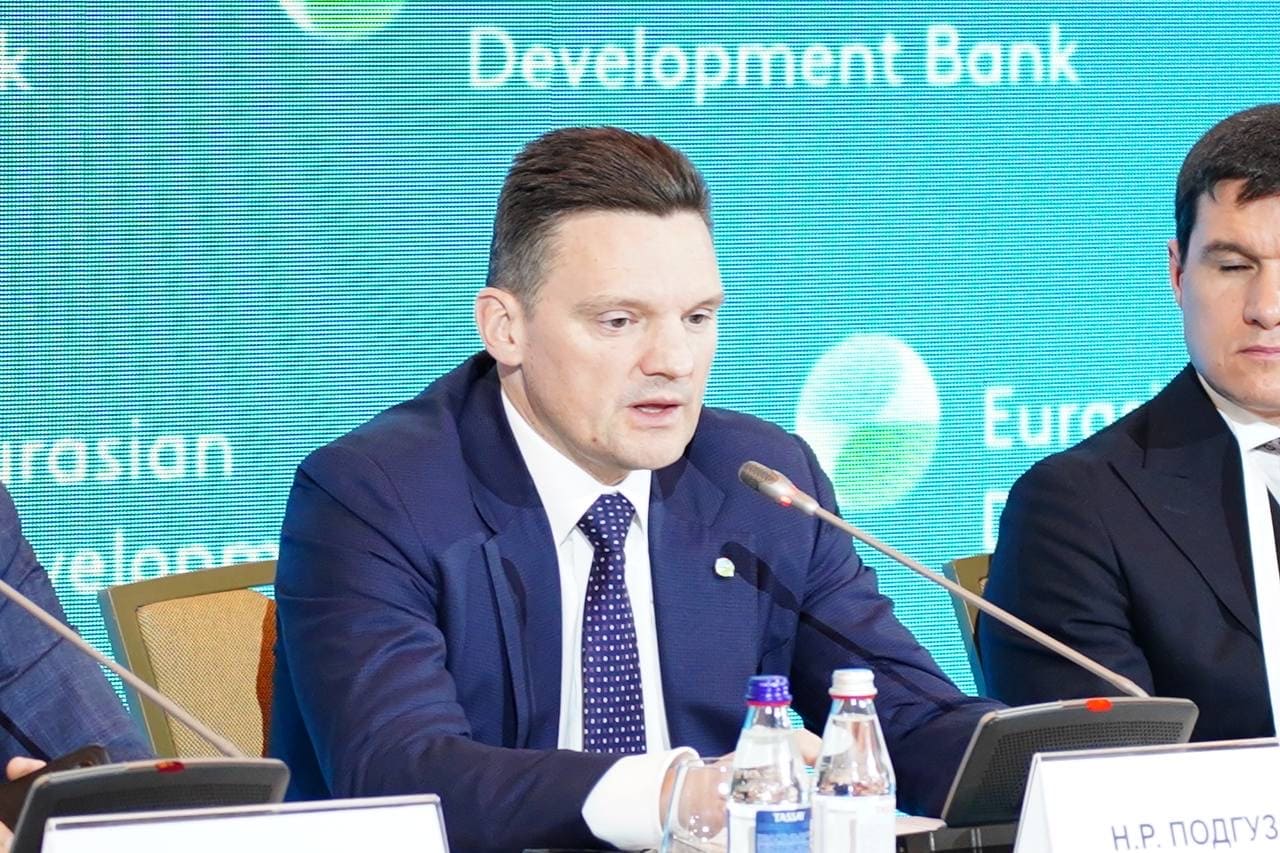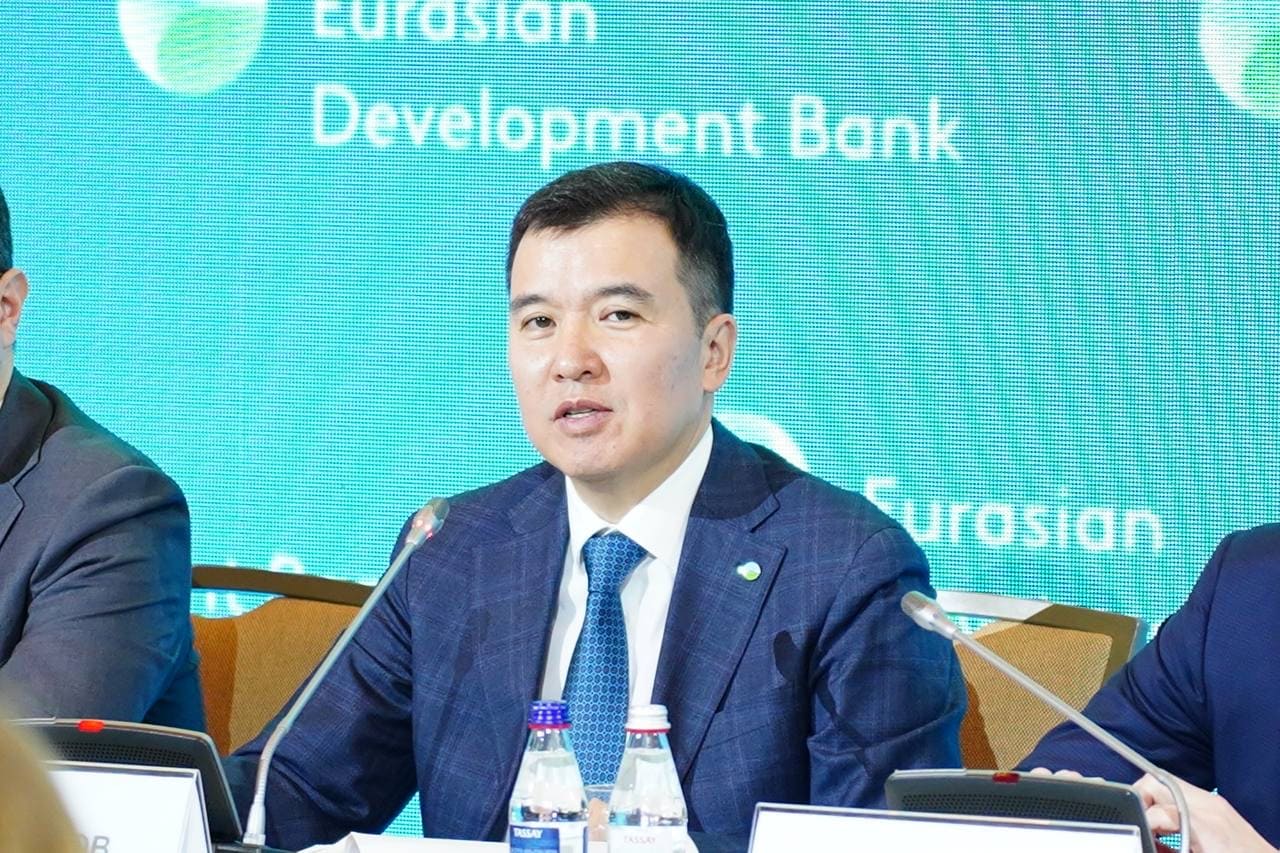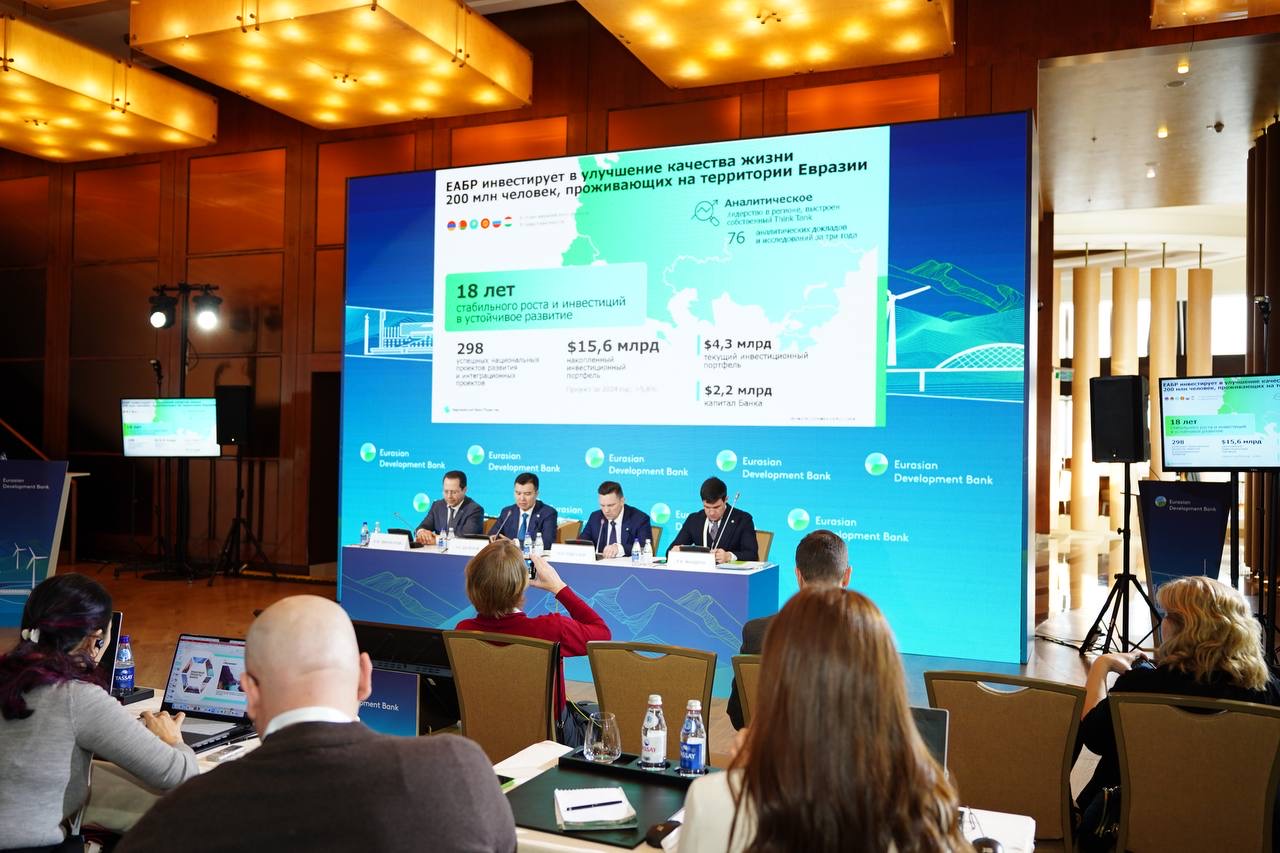In 2024, the Eurasian Development Bank (EDB) signed around 30 new projects to support regional economies, bringing the total annual investment volume to $2.3bn by the end of 2024, one of the highest in its history, according to Chairman of the Management Board at EDB, Nikolai Podguzov.

On December 5, EDB held its annual press conference in Almaty, Kazakhstan to summarize its activities for 2024. Attended by prominent representatives, including Nikolai Podguzov, Deputy Chairmen Ruslan Dalenov and Evgeny Vinokurov, and Iaroslav Mandron, Vice Chairman of the EDB Management Board, the event outlined the bank’s achievements, ongoing projects, and future goals.
“We have been working for 18 years and show quite stable growth, and I believe that the bank's contribution to the sustainable development of the region is becoming more and more significant. Our portfolio already includes almost 300,” Nikolai Podguzov voiced.
The EDB has been a key player in the region for 18 years, demonstrating consistent growth. The bank's project portfolio now includes 298 projects, with expectations to exceed 300 by year-end.
The total investment volume has reached $16bn, marking a 6% increase in 2024. It was noted that the capital increased by approximately 9% over 11 months to $2.2bn, which the bank credits as essential for expanding its portfolio and achieving strategic goals.
The bank also emphasized its commitment to its 2022–2026 Strategy, expecting to meet or exceed all control indicators. The strategic focus includes investments in green energy, infrastructure, agriculture, industrial diversification, and economic sustainability.
Notable projects were implemented in Armenia, Kyrgyzstan, and Tajikistan, where the portfolio for smaller economies grew to $436mn, a 1.5-fold increase from initial targets. By 2026, the share of sustainable development projects is projected to account for at least 25% of the portfolio. In 2024, this share reached 21%, representing $1bn in investments.

Over the past three years, the EDB has emerged as a leader in supporting private sector investment projects in Eurasia. Sovereign financing exceeded $4bn, with annual investment volumes projected to reach $6.5bn by 2024—nearly 20% above the strategy's plan. The bank forecasts to exceed 50% of its five-year investment targets by the end of the year.
"By the end of the year, we forecast overcoming the mark of 50% of our 5-year strategy in terms of investment volume and are an integral part of the international financial community, an active player in Central Asia," Nikolai Podguzov noted.
As per Ruslan Dalenov, from 2006 to the present day, the investments in a number of Central Asian countries have reached $7.7bn, with more than half of them, almost $4bn, coming in the last three years.
The EDB emphasized collaboration with international financial institutions to address challenges in transport, water resource management, energy, and food security. A flagship example is the modernization of Almaty International Airport, executed in partnership with the European Bank for Reconstruction and Development (EBRD) and the International Finance Corporation (IFC).
This year, EDB expanded its focus on energy projects in Central Asia, aiming to invest $2bn in the region by 2026. Four projects are currently underway, with a fifth in the pipeline, totaling over $600mn. The Eurasian transport framework includes 12 approved projects with over $400mn in financing, while the Eurasian trade network has eight projects under review, with one project receiving $70mn in funding. The bank's portfolio includes 25 major investment projects totaling $5bn.

EDB also highlighted advancements in its Technical Assistance Fund, which supported 20 new projects in 2024. The fund’s portfolio is valued at $17mn, with 70% directed toward countries with smaller economies. The bank approved seven new projects under its Digital Initiatives Fund this year, doubling the fund’s portfolio.
Additionally, the EDB implemented projects such as the reconstruction of Almaty CHP-3, construction of a 150 MW power station, and expansion of the Polesie transport-logistics complex in Belarus. These initiatives aim to address critical socio-economic challenges across member states.
In 2024, the bank initiated training programs to develop public-private partnership (PPP) expertise, equipping future specialists in leading universities. These programs also ensure necessary infrastructure for PPP tool development in member countries.
Chairman Nikolai Podguzov announced plans for the 2025 annual meeting to be held mid-year in Almaty to review progress and discuss future initiatives.
Follow Daryo's official Instagram and Twitter pages to keep current on world news.
Comments (0)